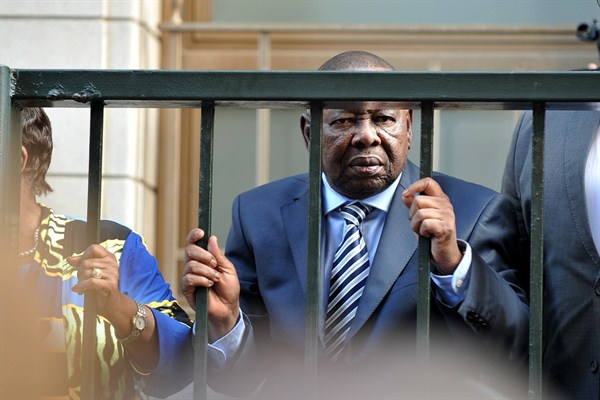Last month, embattled South African President Jacob Zuma removed his higher education minister, Blade Nzimande, who is also the general secretary of the South African Communist Party. It was more than a Cabinet reshuffle. By sacking Nzimande, Zuma poisoned his relationship with the African National Congress’ alliance partner.
The move, and its outcome, was rich in irony. In its desire to be rid of then-President Thabo Mbeki from the early 2000s onward, the SACP, led by Nzimande, fatally tied its fortunes to Zuma’s candidacy. It sought to convince itself that he represented a progressive alternative to the neoliberal economics, excessive centralism and authoritarian culture that they associated with Mbeki. The SACP felt that Zuma would offer a more inclusive approach to intra-ANC and intra-alliance debate, and might even produce a significant left turn in South African politics.
The trajectory of Zuma’s presidency since 2009 has exposed what a historical error that was. His government’s economic policies have remained largely the same and have failed to reverse mass unemployment, which now stands at nearly 28 percent. Inequality and poverty are still deeply entrenched. Moreover, the SACP has come to deplore the corruption under Zuma, in which the state increasingly appears to be run for the benefit of a network of plunderers and buccaneers positioned around him.

